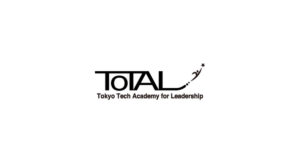ToTAL Program Reports
Workshop of “Lean Launchpad #1” in a course of “Practical Group Work for Leadership” was held on 13-14/Apr
- Course Group:Leadership, Followership and Consensus Building (LFCB)
- Course:TAL.W.601-01 Practical Group Work for Leadership S
- Program: Lean Launchpad 2019
- Date & Time:13-14/Apr (2-day camp)
On April 13th and 14th, 16 students from Tokyo Tech, Waseda University, Keio University, Hitotsubashi University, The University of Tokyo and 9 employees of Weathernews Inc. met at the Lec Tore Hayama in Shonan-Kokusai-mura to kick-start the Lean Launchpad program 2019 of “Practical Group Work for Leadership”.




The Lean Launchpad is a hands-on program designed to develop a startup idea as quickly and cheaply as possible. It has been used in more than 200 universities worldwide and has been happening at Tokyo Tech since 2013. It was based on the classes originally developed by the Steve Blank, professor of entrepreneurship at Stanford University and serial entrepreneur. The workshop was facilitated by Tsutsumi Takashi and Iino Masato from the Learning Entrepreneur’s Lab, a company whose goal is to share know-how on how to start a company.
Activities in this 2-day camp:
To this workshop, 5 student teams and 2 Weather News teams joined. Each of 5 student teams consists of 3-5 students including ToTAL students, AGL students and OPEN students. Team U and I consist of 2 students from Hitotsubashi Univ. a student from each Keio Univ. Waseda Univ. and The Univ. of Tokyo.
7 teams concentrated their efforts to establish their Business Model Canvas (BMC) by considering value proposition of their service (product) ideas and specifying users of such services and/or products. Packed discussion in those 2 days will be helpful for further activities in coming 2 months to identify Early Adopters (EAs) of their service and products. Business outline of each team as follows;
(1) Teclat (Okazaki, Matsuura, Ono, and Kamoi) :
Education program service to high school students who want to understand the reality of software engineers’ jobs and life.
(2) Buy!Buy! (Osaka, Alan, Kida):
Outsourcing service of selecting and delivering of special Japanese goods for overseas visitors.
(3) UandI (Chikaraishi, Takasuna, Tojo, Takahashi, Chie) :
Developing tools to understand stocks in refrigerator and advise appropriate cooking menu and advise shopping list, which can be used as communication tools between partners.
(4) Entraid (Sameer, Sachiyo, Anh, Kokubu) :
Exchanging used books (text books) on campus; Tokyo Tech.
(5) RememberMe (Misato, Miyoshi, Marcos, Chen, Peter) :
SNS Website/application where people can create their own monuments to provide respect and thanks to the history and past.
(6) B-Four (Oyama, Hayashi, Furuyama and Iinuma from Weather News):
Information service about availability of public transportation 3 day ahead of possible typhoon disaster for domestic bank which have to keep their operation even in such disaster situation.
(7) Team SS (Goto, Kinouchi, Hirano, Manabe):
Emergency information and advice services for overseas visitors.







What the participants learned
With many companies being created from inside universities, the Lean Launchpad program was used to teach the participants how to develop a product with the smallest amount of money possible, reducing risks and allowing ideas with potential to be tested in bulk.
Before the kick-off meeting, the participants brainstormed ideas based on problems they had identified in society or on their daily life. These ideas were further developed during an Ideathon that happened on February 16th at Tokyo Tech.
For the first day of the kick-off meeting, the students brought their fresh ideas, which would soon be examined, tested, often rejected and rebuilt. The quick adaptation of ideas is at the basis of the Lean Launchpad philosophy. Differently from other ideation methods, the Lean Launchpad is driven by exploring specified customers who appreciated the new product/service ideas very much first or to modify products/services to be fitted to the specified customers. This helps to minimize risks in product development because it avoids the scenario where a great product is developed but there is no interest, or when the entrepreneurs discover the product needs changes too late in the production process. With that in mind, the goal of the students for the first day was to clarify who was their customer, what are their needs, and modify their original idea based on this reflection (if needed).
In the second day, the students started to conceptualize the product required to satisfy the need of their first user, an enthusiastic customer who really believes in the product, someone who would use it even if it is not perfect. In the Lean Launchpad, these early customers, also called Early Adaptors (EA) are the people who will allow the product not only to be viable since the beginning but will also provide feedback that will improve the product until it becomes attractive to more people.
The Steve Blank Award
At the end of the kick-off meeting, the participants were set on the mission of conducting interviews to find their EAs and present their case on the next meeting.
In total, the Lean Launchpad will have more five more meetings, after which the teams will present their final products and clients. At the end, a winner will be chosen for the Steve Blank award based on the most promising idea!

(Reported by; Marcos Kunihiro Masukawa, M2, Artificial Intelligence Course, Tokyo Tech, 2018 ToTAL Student)

